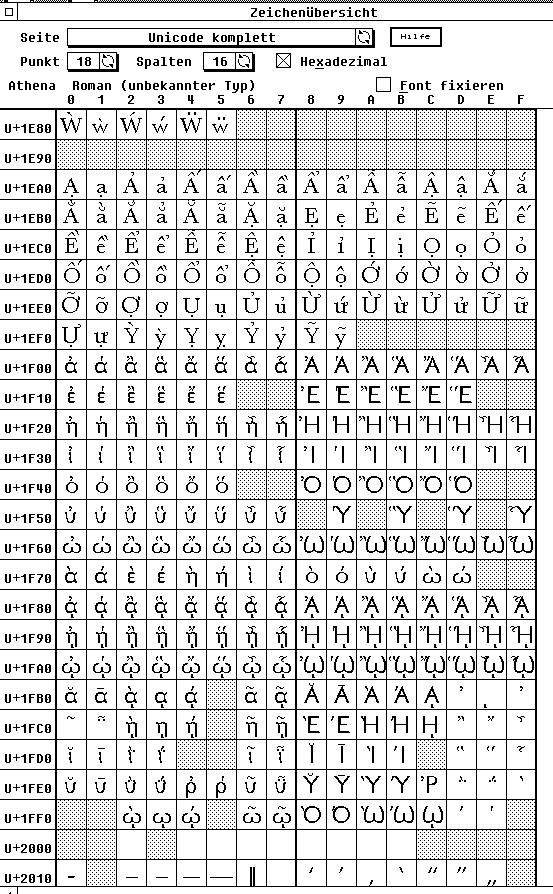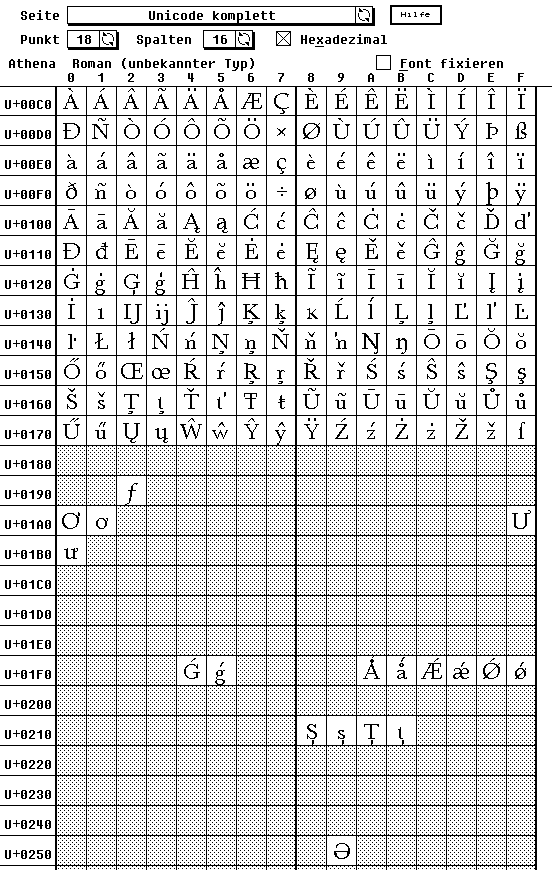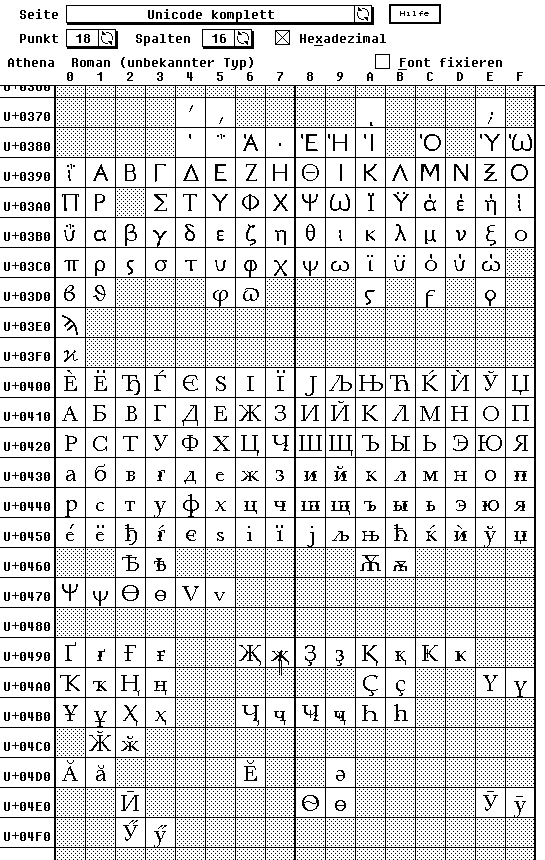|
Lately I noticed several questions - both on the Internet as on
Fidonet - about Greek. I was thinking about arranging a similar
spdchar.map file for the Greek language but then realised that the
Bitstream spd-fontfiles didn't contain the Greek characters [only a
fistfull]. The Monotype ttf-files I have do contain all the Greek [and
Cyrillic] characters I need [Arial, Times NewRoman, Courier New] but I
don't know how to match them - if possible - via the spdchar.map file.
In Papyrus 5, I can import whatever language files I want, using
their *.map files [Belegung-folder] and so choose ISO-8859-2 or
Windows 1250 or - in case of Greek - Windows 1253 or ISO-8859-7.
Saving a Greek html-file in CAB - I can't read it in CAB - I can later
import it in Papyrus 5 [using the right filters and the above
mentioned ttf-fonts] and read it on screen or print it on paper. It's
just that the httml-tags are still around! Getting rid of them should
be possible by using yet another utility I hope.
| |
Having gone through all this, I was just wandering why can't we
use the Papyrus-import filters [or similar ones to speed up the CAB
handling] letting CAB be steered by the hmtl-metatags like:
<meta http-equiv = "content-type" content =
"text/html;charset = ISO-8859-2"> ?
Default can be ISO-8859-1, and you don't have to worry about the
funny Atari-belegung with its Hebrew characters on unconventional
positions anymore!
I know it's only a temporary solution - as long as we're not
adopting the 16-bits Unicode [or ISO-10646]. Thus we can have a 8-bits
coding, using the ISO-8859-x and Windows 125x filters, and have access
to Western European, Scandinavian, Eastern European, Greek and Hebrew
homepages on our Atari machines.
|


